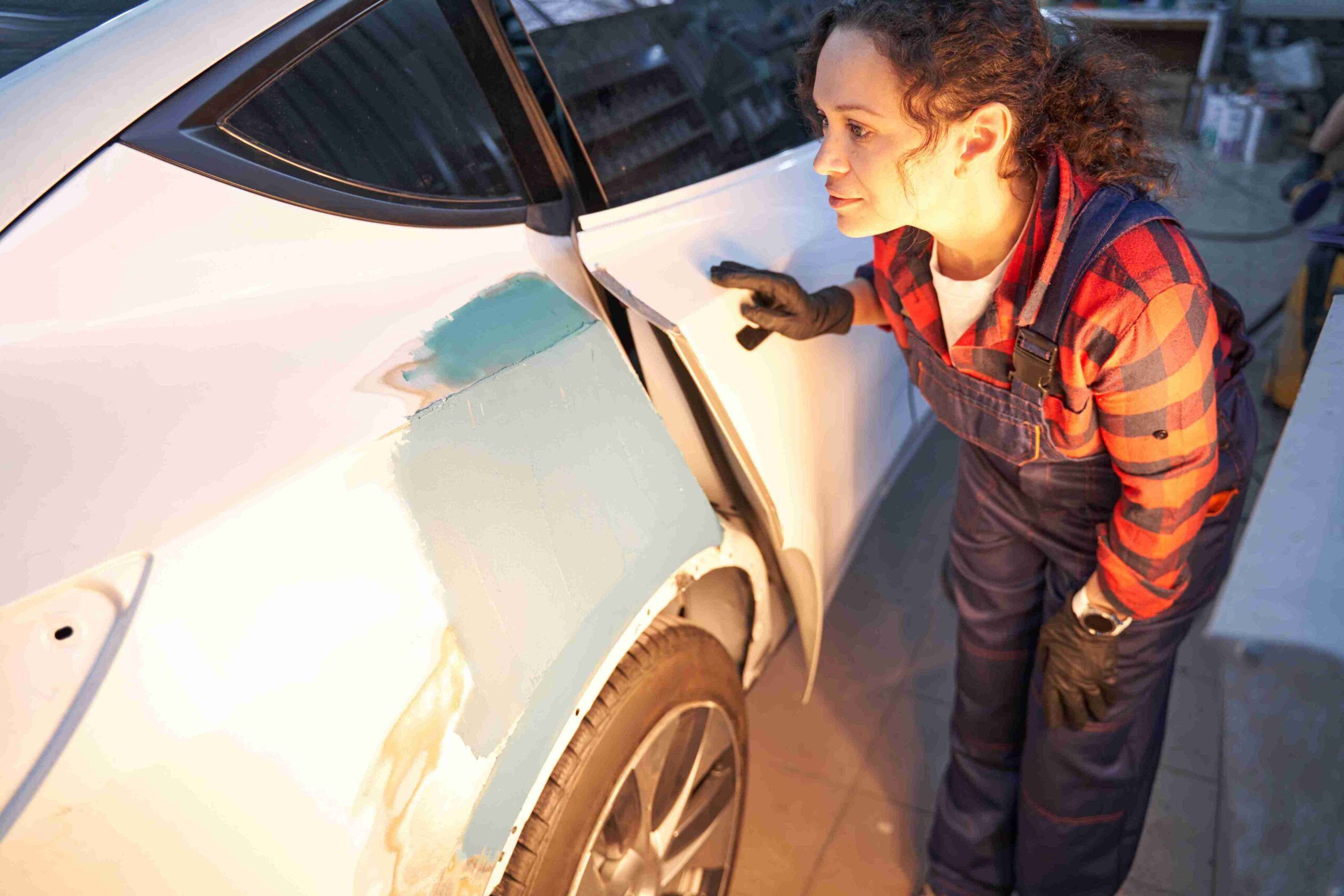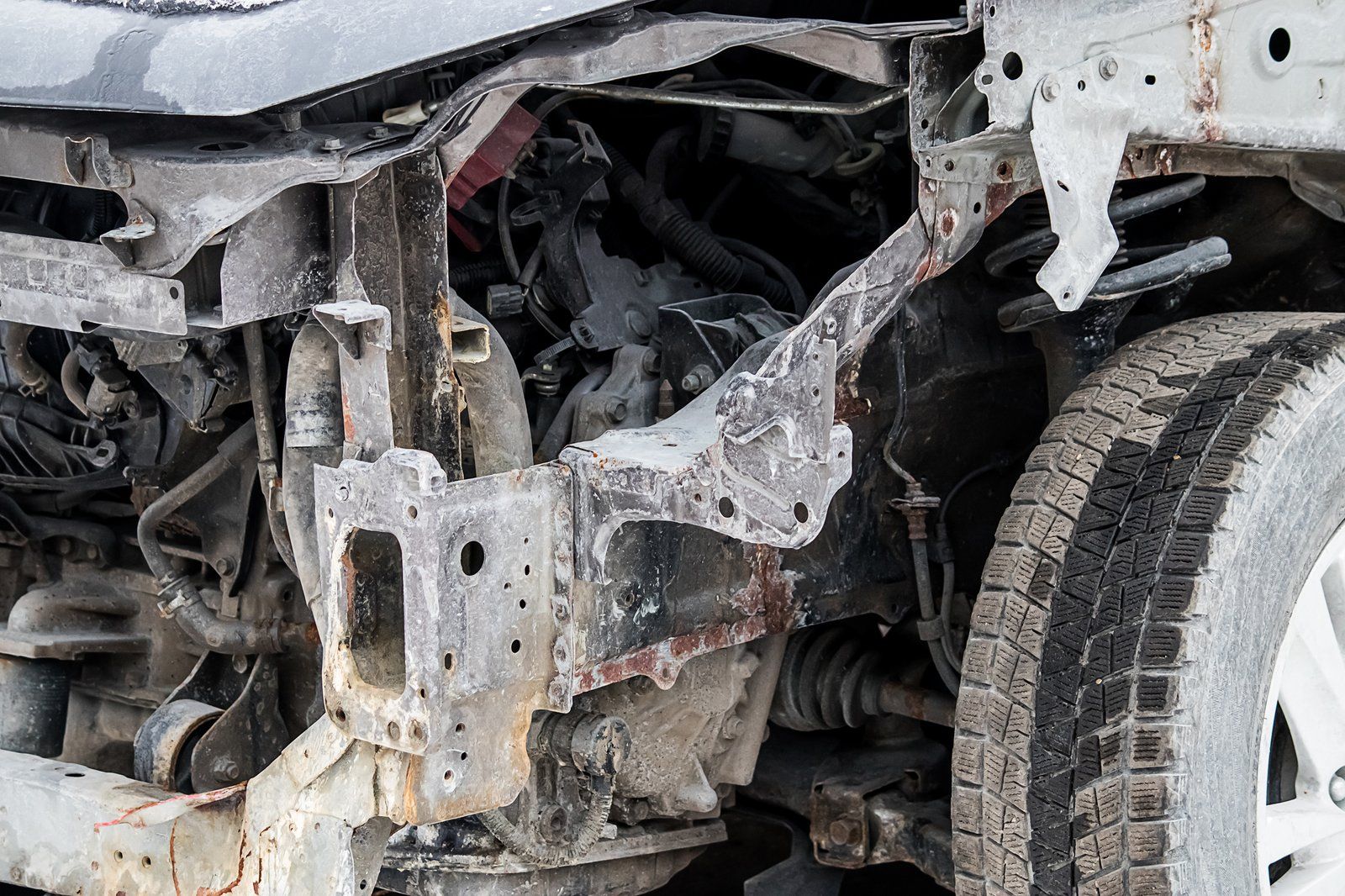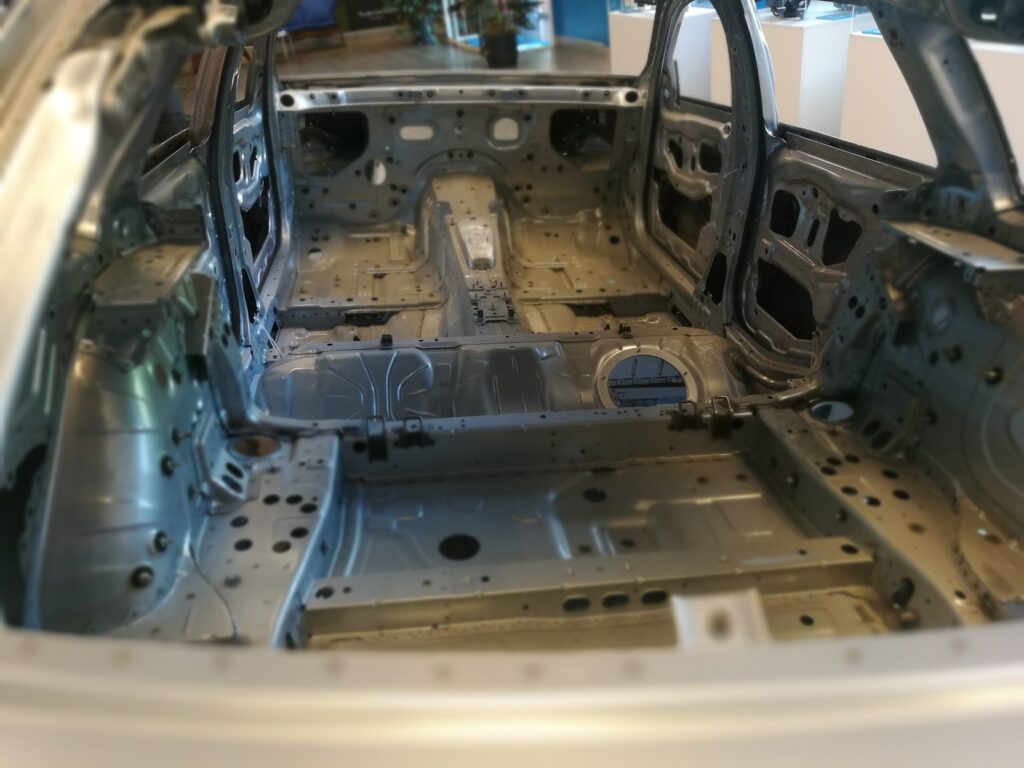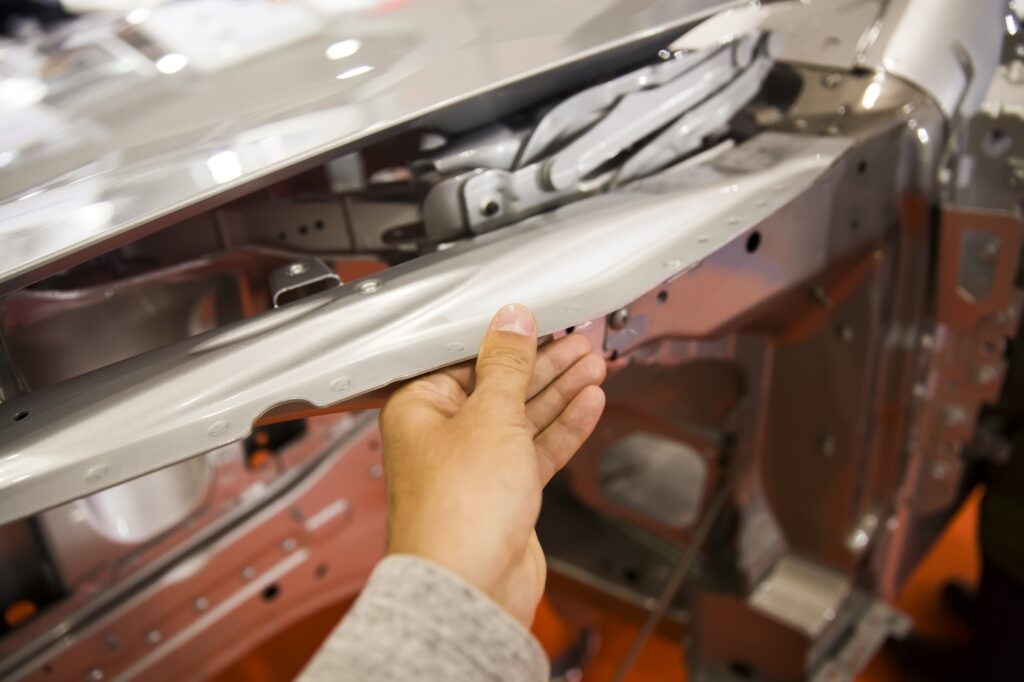Auto Body Repair Cost In Virginia (Breakdown)
Car damage always feels like bad timing. Maybe you backed into a pole, someone clipped your bumper in a parking lot, or you got caught in a fender bender during rush hour.
No matter how it happens, the first thought is usually the same: how much is this going to cost?
And if you live in Virginia, you know prices can feel unpredictable.
One shop might quote you a few hundred bucks, while another makes it sound like you’ll need to take out a loan.
In this post, we’ll break down how much auto body repair costs in Virginia, and go over the factors that affect your final bill.
How Much Does Auto Body Repair Cost?
Auto body repair in Virginia can cost anywhere from $500 to $10,000+ depending on the severity of the damage, the kind of repair you need, and the shop you go to.
You might be looking at somewhere between $500 and $1,500 for moderate repairs.
For more serious stuff (like frame repairs or major collision damage) the price can easily jump to $10,000 or even more. And that’s before we even get into custom work or paint jobs.
Here’s a quick look at average price ranges so you can see how repairs usually stack up:
| Type of Repair | Avg Cost |
| Small scratch or paint touch-up | $150 – $500 |
| Minor dent repair (no paint) | $200 – $600 |
| Dent repair with paint work | $400 – $1,200 |
| Bumper repair or replacement | $500 – $1,500 |
| Door or panel replacement | $800 – $2,500 |
| Frame straightening | $800 – $3,500+ |
| Full collision repair | $2,000 – $10,000+ |
Keep in mind, these numbers are ballpark estimates.
Also Read: Car Suspension Repair Cost In Virginia
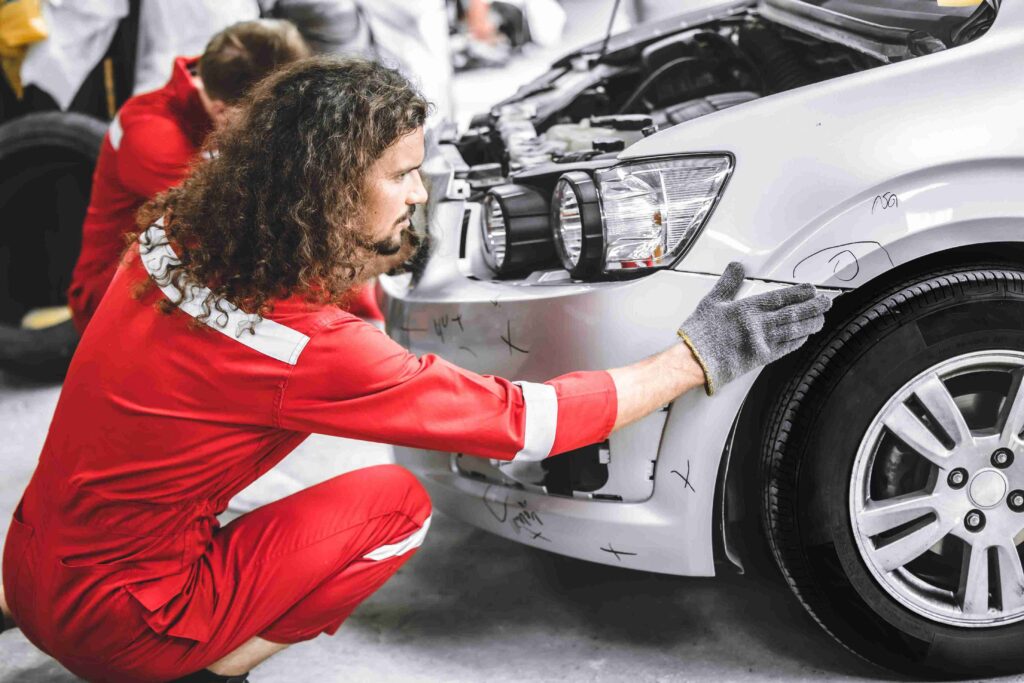
Factors That Affect The Cost Of Auto Body Repair
No two repairs are exactly the same. What costs your neighbor $500 might cost you $2,000 because your car is newer, or the damage is deeper.
Here’s what really decides how much you’ll pay for auto body repair in Virginia:
#1 Extent Of Damage
This one’s pretty obvious. The worse the damage, the more you’ll pay.
If you’ve got a dent or a couple of scratches, it’ll likely cost less to fix than if the whole side of your car is crumpled.
Minor repairs like small dents or scratches can cost anywhere from $150 to $1,000.
If your car has serious damage like a smashed fender or total front-end collision, expect the cost to go way up. Not only does it take more time to repair, but it can also involve replacing parts. Those parts add up quickly.
Plus, if the structure of your car is compromised, the repair will get more complicated.
#2 Type of Repair Needed
There are a few types that can pop up, each with their own price tags.
Some fixes are straightforward, like buffing out scratches or replacing a single panel. Others are technical and time-consuming, like welding, straightening, or complete structural repairs.
Repairs that involve major parts of your car’s frame or require precise alignment equipment always cost more.
Cosmetic work looks expensive when you’re staring at an estimate, but compared to frame repairs, it’s usually a bargain.
So, the type of repair is huge in determining auto body repair costs.
#3 Parts Used
If your car needs parts replaced, the price can vary depending on what you need.
OEM (original equipment manufacturer) parts are more expensive, but they’re usually the best option for matching your vehicle. These parts can add a good chunk of change to your total cost.
If you’re okay with aftermarket parts, the cost might be a little less.
However, aftermarket parts aren’t always the same quality. So, it’s a trade-off.
For example, replacing something simple like a headlight could cost $100 to $500 depending on the make and model of the car. But if you’re dealing with parts like a bumper or suspension, those prices can skyrocket.
#4 Paint Work
This is one that often surprises people.
Car paint jobs aren’t just a quick brush stroke. The color, type of finish (gloss, matte, metallic), and prep work all influence the price.
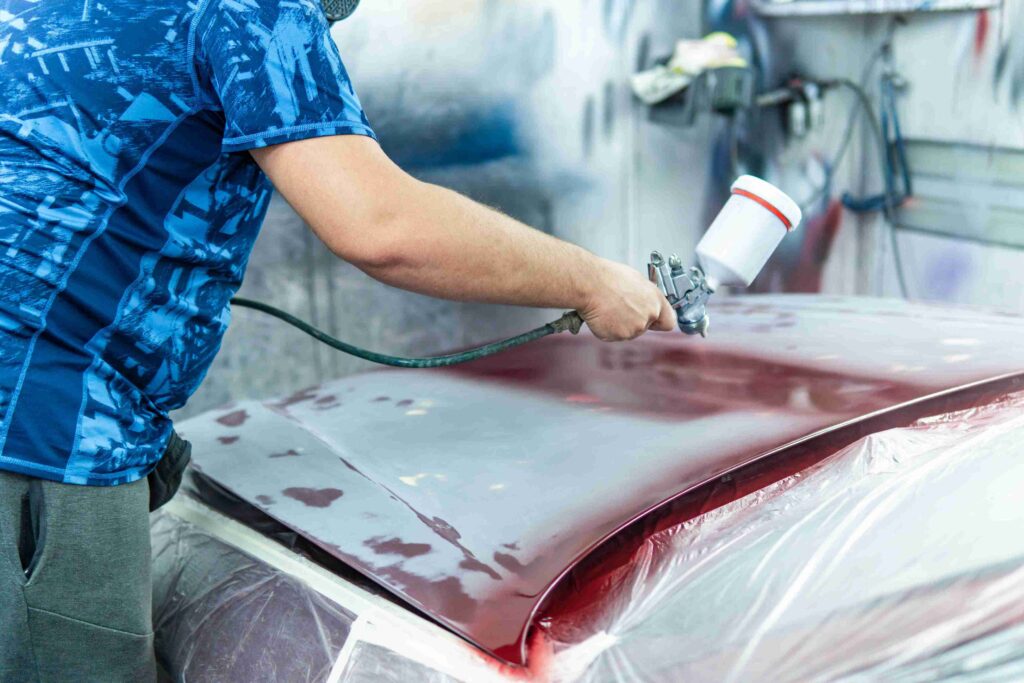
A quick respray of a small section might cost between $300 – $900. But a full paint job on an entire car can range from $2,000 to $5,000, depending on the shop and the quality of the work.
If you’re just touching up a small scratch, that’s cheap. But if the whole car needs to be repainted, it gets expensive real quick.
If your car is a luxury model or an uncommon color, expect to pay even more.
Also Read: How Much Does It Cost To Repaint A Car In Virginia?
#5 Labor Rates
Labor rates in Virginia can vary a lot depending on where you go.
In cities like Richmond or Northern Virginia, rates tend to be higher than in more rural areas. The cost of labor generally ranges from $50 to $200 per hour, depending on the shop and its location.
Labor time also varies based on the repair itself.
A simple dent might take an hour or two, while something more involved, like frame straightening, could take several days.
Labor is a big factor in the total cost of auto body repair because it can easily add up.
#6 Vehicle Make And Model
Driving a luxury brand? Expect to pay more.
Why? Well, luxury and foreign cars often require special parts, specialized skills, or even unique tools that increase the cost. Some models may be harder to work on, which makes the repair more labor-intensive and, thus, more expensive.
And don’t forget about the availability of parts.
If you drive a car that’s a few years old, some parts might be harder to find, and you might have to pay a premium to get the right one.
Also Read: How Much Does Wheel Repair Cost In Virginia?
#7 Technology In The Car
Modern cars are loaded with sensors, cameras, and electronic systems.
They’re great for safety and convenience but not so great for repair bills.
If a sensor gets damaged in a collision, it’s not just about replacing the part – it also has to be recalibrated.
Think about things like lane assist, adaptive cruise control, or parking sensors. Any time these features are involved, the repair process gets more complicated.
More time, more tools, and more expertise all mean higher costs.
#8 Certifications / Shop Grade
The shop you go too will also affect the cost of car body repair.
Some shops have high-end certifications from manufacturers like Honda, Toyota, or BMW. These certified shops cost more because they use better equipment and their technicians are specially trained.
If you’re going to a shop with high-end certifications or a well-known reputation, you can expect the prices to be higher than at a generic repair shop.
That doesn’t mean you’re being ripped off – you’re paying for the quality of the work and the expertise.
There are also shops that might be cheaper, but they may not be as thorough or use the same quality of materials. So, it’s all about finding the right balance for your needs and budget.
Bottom Line
The cost of auto body repair in Virginia can range pretty wildly. It depends on things like the extent of the damage, the type of repair, and the make and model of your car.
Minor repairs can cost under $500, while major repairs could easily top $5,000.
If you’re trying to keep costs low, go for the least expensive repairs first, like small dent removals or bumper fixes. But always keep in mind that quality matters too. Sometimes it’s worth spending a little more to make sure your car is in top shape.
So take your time, get a few quotes from different shops, and ask about the details.

